For almost two years during the coronavirus pandemic, one of the two terminals at London’s Gatwick airport stood empty as passengers stayed at home and the travel industry battled for survival.
The mothballed South Terminal became an eerie place: the shutters were drawn at shops and restaurants, baggage carousels and boarding gates were closed, and motion-sensitive lights flickered on to interrupt the darkness. Police used the empty space for training drills, and many of the planes were left indefinitely on the tarmac, their engines wrapped in covers to protect them.
Gatwick was not alone. The aviation industry was in the deep freeze after demand for flying collapsed because of travel restrictions brought in around the world to control the spread of Covid-19.
Airline and airport executives bemoaned a historic crisis and many governments funnelled direct cash support to help the industry survive. Companies shed tens of thousands of jobs, loaded up on debt and parked planes to ride out the disruption.
But after 24 months of crisis management, passengers are suddenly coming back so quickly that the industry does not know what to do with them.
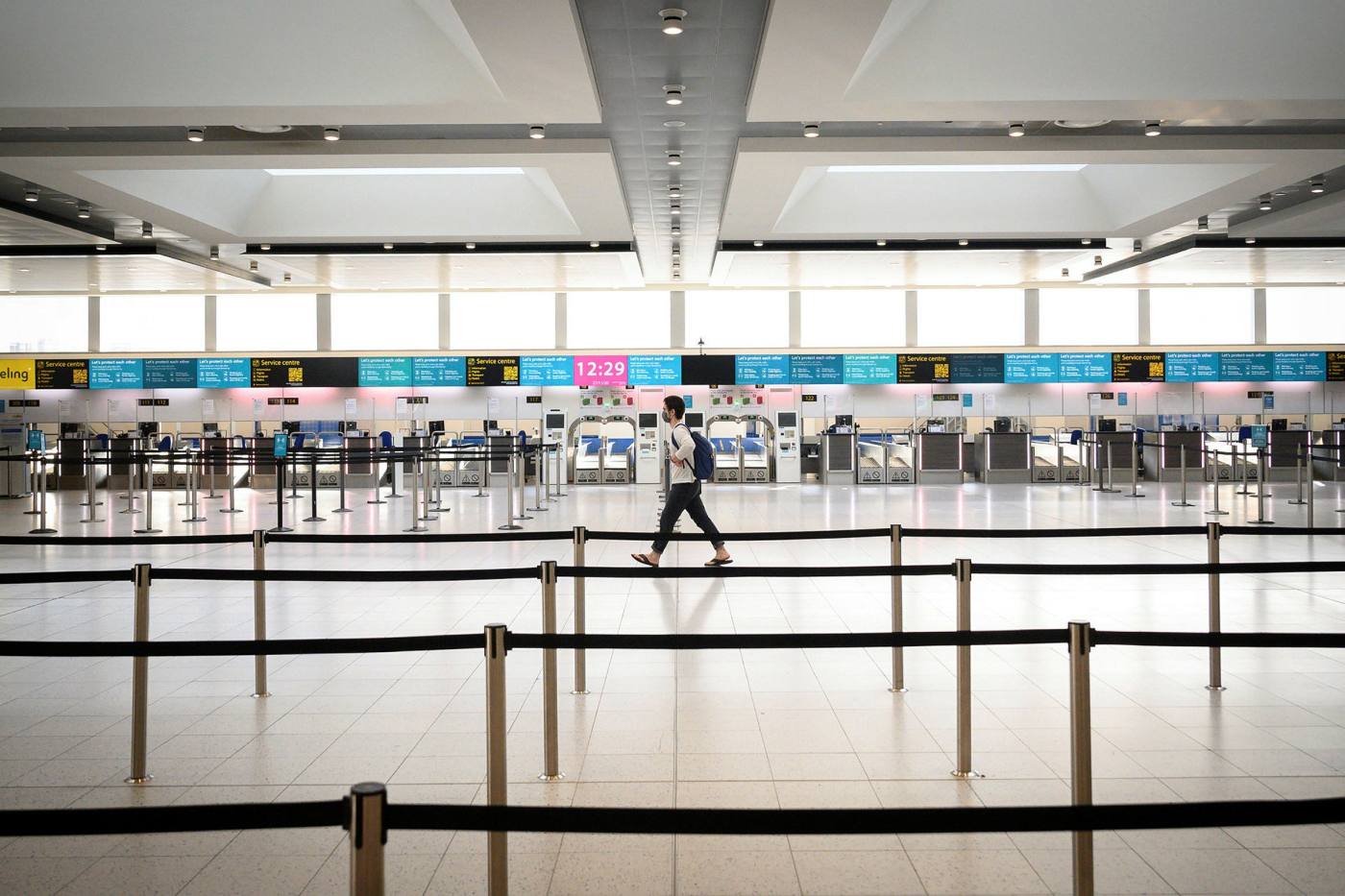
The number of scheduled flights has recovered to 89 per cent of 2019 levels this month, having fallen to just a third in April 2020, according to a Financial Times analysis of data from Cirium, a consultancy.
The revival comes as border restrictions loosen across much of the world, setting off a scramble at airports and airlines to ramp up operations, rehire staff and get planes back into the air.
Some markets were more resilient than others, particularly larger countries such as the US and China, which were shielded by continued demand for domestic flying. But the industry is now recovering around the globe, even in parts of Asia-Pacific where borders have just begun reopening.
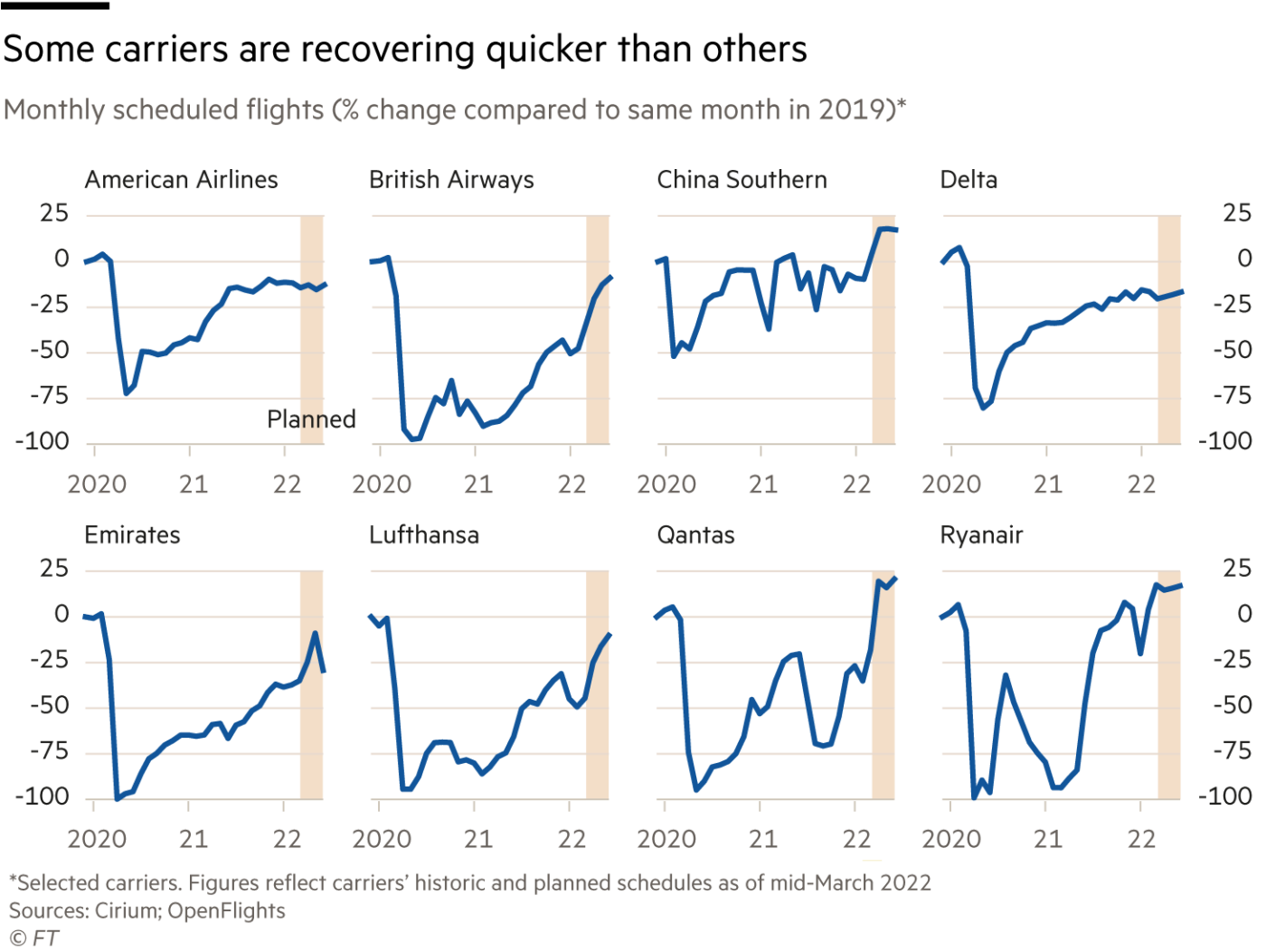
Easter was the first busy period in two years for many markets and a dry run for the peak of the northern hemisphere summer months of July and August.
“The demand that we’ve seen over the last five weeks has been historic. We’ve never sold more tickets in any period in [our] public history . . . it’s been remarkable,” says Ed Bastian, Delta Air Lines’ chief executive.
The surge vindicates airline bosses who insisted that demand for travel would come back as soon as travel restrictions disappeared, and it will inject critical revenue into cash-strapped companies.
But the rise in demand has also seen the industry crumple under the pressure, as many airports and airlines struggle to handle the growing passenger numbers, particularly after cutting costs to the bone during the crisis. That has left limited financial resources to plough into the restart.
“The choices are unenviable,” says Martin Chalk, head of the pilots union Balpa. “Airlines suffering insufficient staff can either give up market share to deal with the disruption by putting on fewer flights, or take [the business] and risk not being able to fulfil their flights.”
A challenge to the network
The recovery in the US is ahead of most of the rest of the world, as its strong internal market led flight schedules to reach more than 80 per cent of pre-pandemic levels by last summer.
However, the experience in the US does not bode well, given that the industry has since suffered regular bouts of disruption as it struggled to respond to rising bookings. The number of cancelled flights hit record levels going into the 2021 holiday season, and airlines including Spirit, JetBlue and Alaska have said they will trim schedules for spring and summer to avoid further cancellations or delays.
The union representing American Airlines pilots has launched a lawsuit against the airline and claimed it “was clearly ill-prepared for the rebound in airline traffic” and will “no doubt” struggle with its summer schedule, especially after extreme weather events, because there are not enough pilots to handle such a full, tight schedule smoothly. American said it is fully prepared for summer travel.
“The whole [airline industry] infrastructure is not set up to snap back to these rapid growth rates,” said Scott Kirby, United Airlines chief executive, during an earnings call on Thursday.
“It’s not just us: it’s the [Federal Aviation Administration], the [Transportation Security Administration], fuel vendors . . . All of those constraints [can] get in the way of a reliable schedule.”
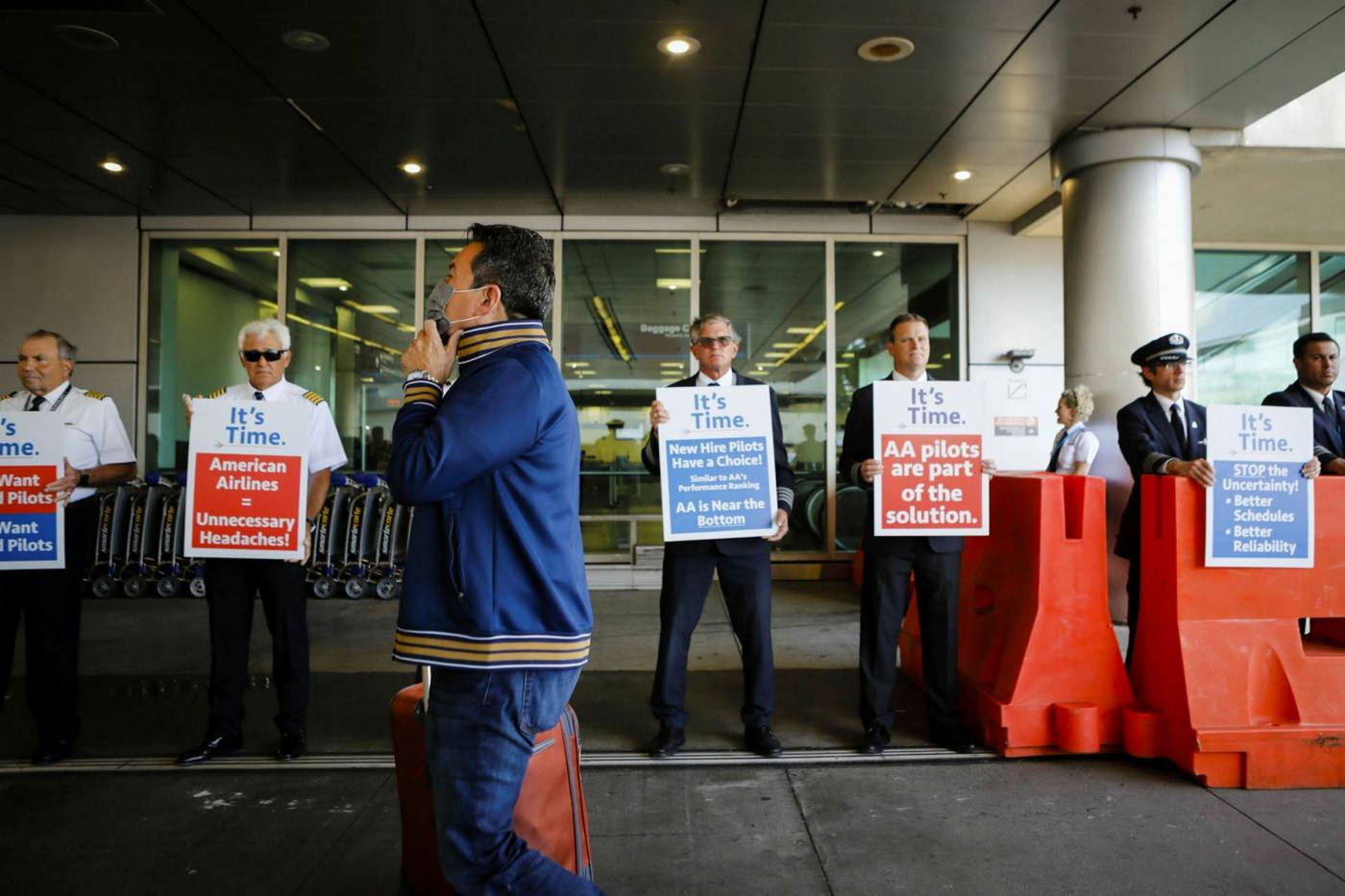
At Gatwick, where there has not been major disruption, the airport overnight went from handling 300 flights a day to 570 when the South Terminal reopened in late March.
Stewart Wingate, Gatwick’s chief executive, has compared the logistical operation to trying to open a medium sized airport from scratch, and the airport has warned passengers to arrive early to avoid queues as thousands of people crammed back through the terminals.
Other parts of the industry have buckled. Passengers at Manchester airport have complained of five-hour long queues snaking out of the airport, while easyJet and British Airways cancelled hundreds of flights this month because of staff shortages exacerbated by a string of Covid infections among crew.
In Dublin, Ryanair’s chief executive Michael O’Leary has called for the army to be drafted in to help staff security at Dublin airport, while the queues in Sydney were headline news in Australia over Easter, when the city’s airport faced the busiest weekend in two years.
Mindful that they will not be able to fulfil their advertised schedules, some airlines in Europe have this spring been trimming the number of flights to protect against last-minute disruption, including BA where one in 20 flights this year has been cancelled, according to Cirium data.
“What we are seeing already emerging in Europe is some less aggressive scheduling, as airlines start to take flights out to try to avoid operational disruption running through the network,” says Rob Morris at Ascend by Cirium. “They are still pretty much on a knife edge, and it doesn’t take much disruption to cause the network to start to fall.”
In a sign of the rapid turnround in airlines’ fortunes, Morris says some airlines have even sharply increased ticket prices to try to damp demand.
Inside the hiring frenzy
The pressure is particularly intense because as recently as the new year, many countries were still bringing in new travel restrictions and flight bans following the emergence of the highly contagious Omicron coronavirus variant. But at the heart of the problem lies a simple lack of resources.
As a result of the pandemic, the industry slashed its headcount. There were 2.3mn fewer jobs in aviation by September 2021 compared with pre-Covid levels, according to research compiled by Oxford Economics. The figures include a 29 per cent fall in contracted staff working at airports, such as ground handlers, where 1.7mn jobs were lost.
Swissport, one of the world’s major ground handling companies, cut its workforce from 65,000 to 10,000 through a mix of staff cuts and furloughs in March 2020. By January this year, its staff was back up to 45,000 and the company is now working to rehire 17,000 new workers.
Heathrow, the UK’s busiest airport, this month warned “resources are stretched” and said businesses around the airport needed to hire an extra 12,000 people to cope with demand in the coming summer.
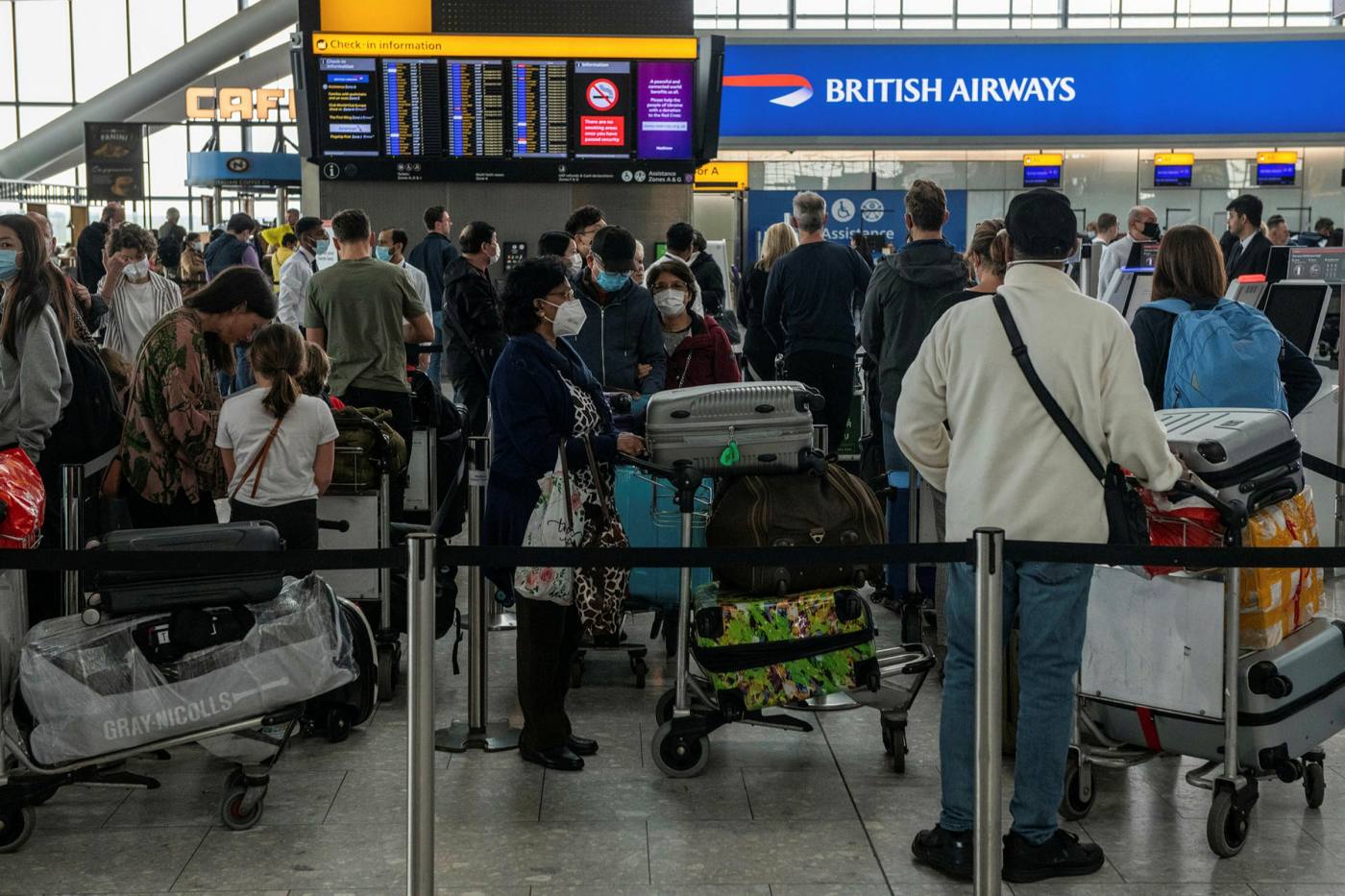
The situation has been worse 200 miles away, where the chief executive of Manchester Airports Group, Charlie Cornish, was forced to issue a public apology.
Cornish said the airport in the north of England had switched from “survival mode” as recently as January during the Omicron wave, to a “stunning recovery” in demand.
“The simple fact is that we don’t currently have the number of staff we need to provide the level of service that our passengers deserve,” he said.
While the industry is going through a frenzy of hiring, heightened security arrangements make it harder to get new recruits on to the frontline quickly enough. Many destinations also still require passengers to present Covid documents to be manually inspected at check-in.
Cornish has said Manchester airport currently has 200 staff going through background checks, while easyJet’s boss Johan Lundgren said last week that it had 100 staff awaiting clearance. That means anyone who can start immediately is hot property, and BA has offered prospective cabin crew a £1,000 sign-on bonus if they have already passed the necessary security checks.
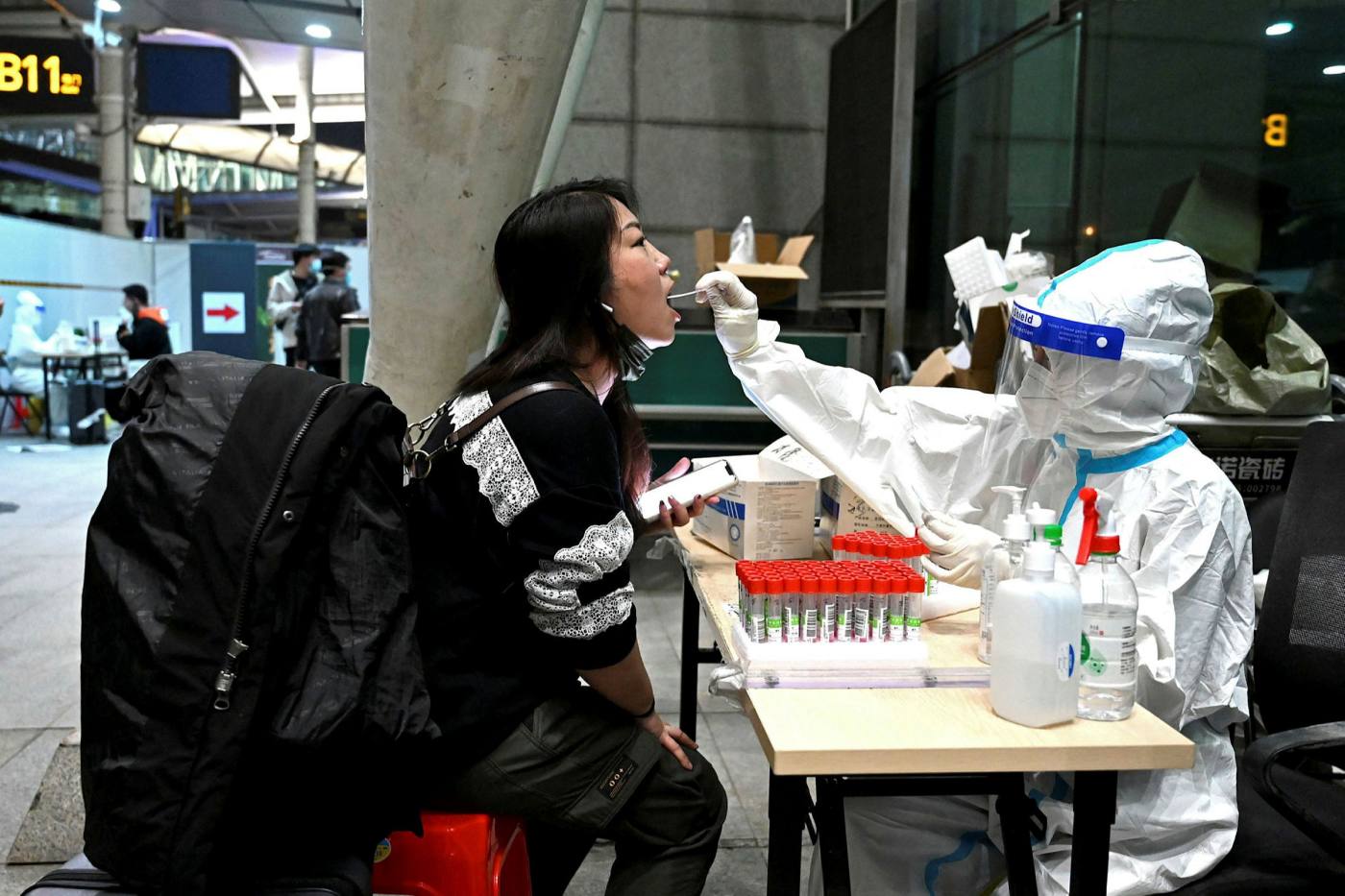
Stephen Cotton, general secretary of the International Transport Workers’ Federation, a union, says the global chaos “is a direct result of bad decisions” by airlines and governments. He says governments should have extended more support, and industry cost-cutting had been “short-sighted”.
“We have lost over 2mn workers from the industry. And now it’s the workers who are left doing the jobs of two or three people and who are bearing the brunt of the frustration and anger of the passengers,” he says.
The travel industry has denied cutting people too quickly, arguing that the uncertainty of two years ago meant that difficult decisions needed to be taken.
“I would be reluctant to say that this is because of bad planning on the part of airlines and airports. I think to be fair to them they had little choice but to reduce their staffing at the height of the crisis,” says Willie Walsh, head of the International Air Transport Association (Iata) and the former boss of BA.
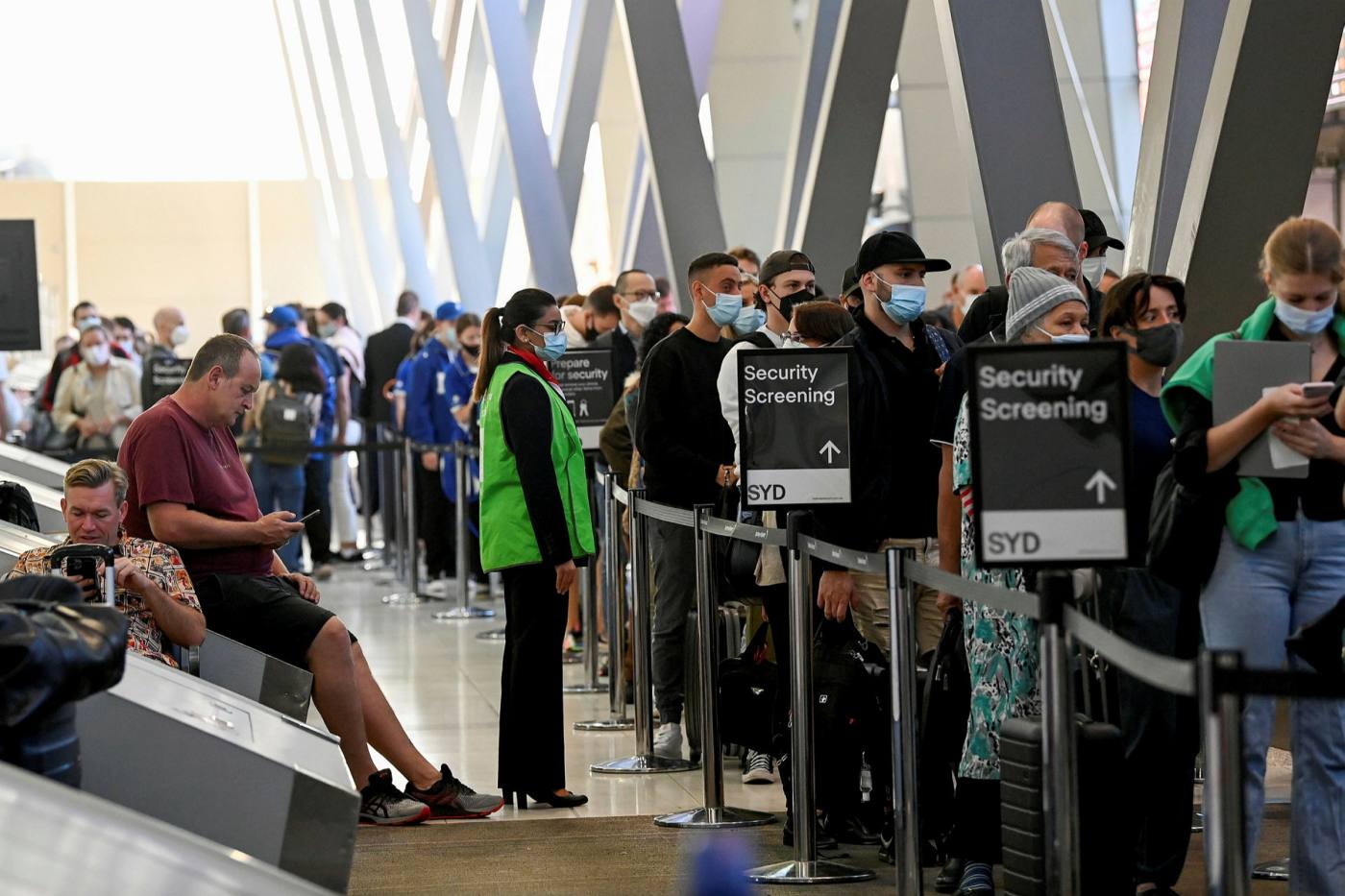
Some industry executives and unions fear that aviation has become a less attractive career option in the current tight labour market, particularly given the antisocial hours and relatively poor pay.
One baggage handler in Sydney says the volume of bags had become “overwhelming” at times, and his team was the busiest it had ever been. “People who have been working through the whole crisis are shocked and somewhat drained,” he said.
“Quite a few” colleagues were looking elsewhere for jobs with better pay and conditions, he adds.
Marion Geoffroy, Wizz Air’s UK managing director, says it had “not been easy” to recruit, but that the company increased pay for UK cabin crew to help encourage new applicants. “I think the sector is becoming more attractive [again],” she says.
Return to profitability?
While delays and disruption cause frustration for returning passengers, they also illustrate a huge pent-up demand for flying that was barely imaginable during the pandemic’s bleakest moments.
EasyJet parked its fleet for 11 weeks during the spring of 2020, and Lundgren says he was just happy to be back dealing with operational issues, having made it through “survival” mode.
“The recovery is a great thing. I love having operational meetings right now, where we can talk about things like having too many customers in the system . . . Great, let’s sort it out,” he told an industry conference.
EasyJet will fly close to its pre-pandemic flight capacity this summer, while BA owner IAG plans to restore its full 2019 levels of flying across the north Atlantic routes between Europe and the US.
Wizz Air, the European low-cost carrier, is targeting flying 40 per cent more seats than in 2019 during the busiest summer months.
The recovery will help begin to repair the industry’s finances, which were decimated by the pandemic. Several airlines, including Norwegian and LatAm, filed for bankruptcy, while even the strongest carriers loaded up on debt to help them through the collapse in passenger numbers. Iata said last year that 40 per cent of the $269bn in government handouts to the companies had come in the form of debt that needed to be serviced and eventually repaid, and that the industry’s debt burden had grown by $220bn from 2019 to the end of 2020.
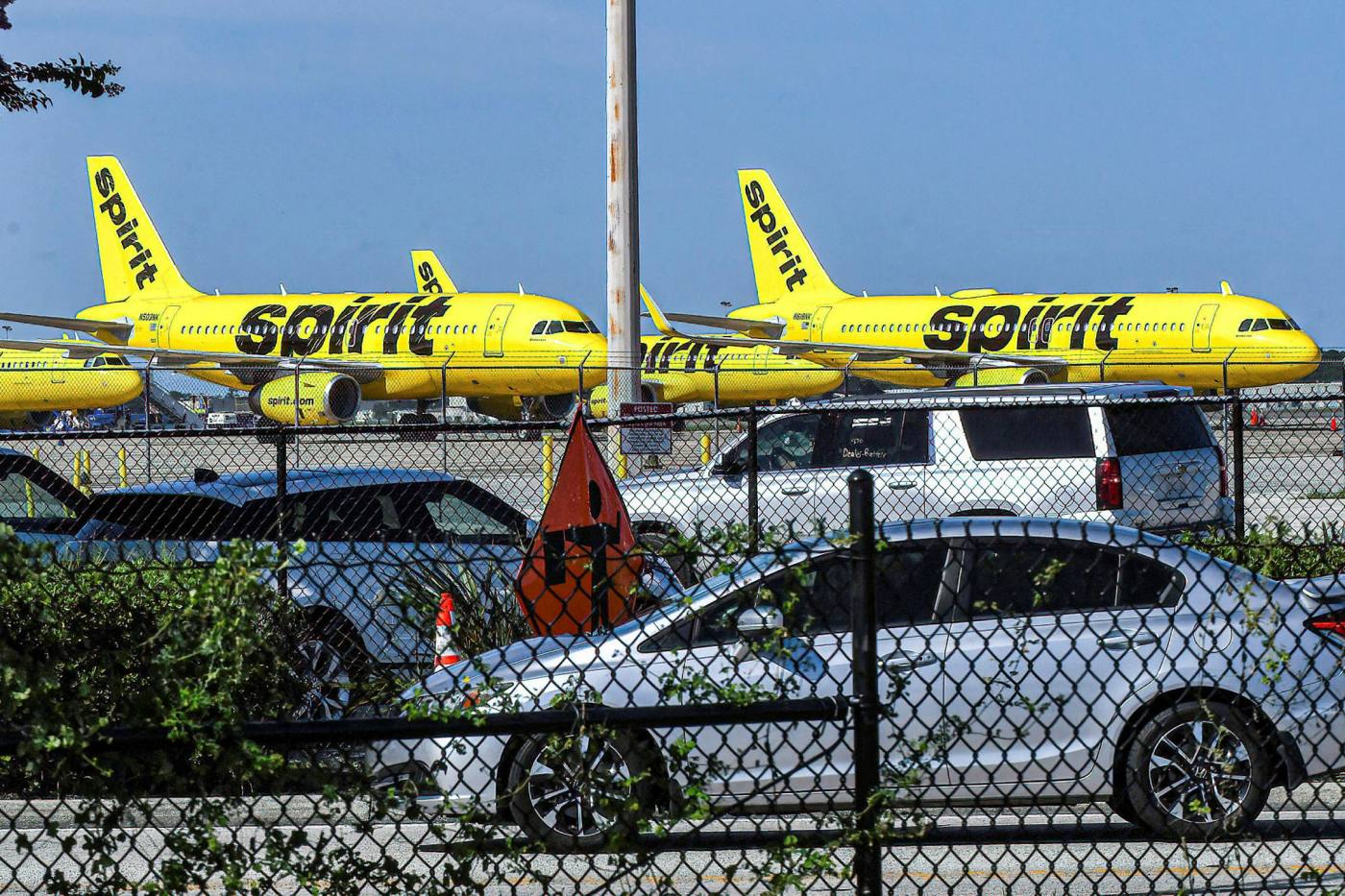
Overall, the trade body forecasts the global industry will still lose $11bn this year given that passenger numbers will not fully recover, taking overall net losses between 2020 and 2022 to $200bn.
While the three largest US carriers posted first-quarter losses, American, United, and Delta all expect a profitable second quarter, with United and Delta predicting profitability for the full year, despite spikes in fuel prices. United anticipates a record quarterly profit during the current three-month period.
For many airlines in Europe, the ramp up into the peak summer season is set to mark a turning point between multibillion-euro losses and a return to profitability, regardless of the disruption.
“This is it, 2022 is the year [European] airlines get profitable again, especially short haul leisure carriers,” said Alex Irving, an aviation analyst at Bernstein.
Ryanair’s O’Leary has said he is aiming for €1bn profit in the current financial year beginning in April, while in the US some airlines first returned to profit during a spike in demand last summer.
The rebound has been driven by leisure trips and people visiting friends and family abroad, while the recovery in business travel has been slower. Still, this key profit engine for many companies has also shown signs of life. Delta said domestic corporate sales in March were 70 per cent of 2019 levels.
The travel industry’s recovery has come despite the backdrop of the Russian invasion of Ukraine and soaring inflation, and some executives question whether the surge in leisure travel is here to stay, or a one-off release from two years of pandemic restrictions.
“The return of demand is very welcome, though it is unclear whether the current surge in outbound leisure demand is sustainable,” Heathrow airport said this month.
Edmond Rose, a consultant and former airline executive, says travel had dipped during previous global slowdowns, leaving the outlook for the economy critical to the travel industry’s fortunes.
Some executives also privately question whether reports of nightmare delays could put people off booking summer travel, which would be an effective if unwelcome way to solve the overcapacity issues.
Bookings data shows there was a “relative slowdown” in ticket sales for flights leaving the UK in early April, coinciding with media reports of flight delays, says Olivier Ponti, an executive at aviation data company ForwardKeys.
“It is difficult to know if that slowdown was prompted by media reports or other factors,” he says, “or whether it’s just a temporary blip.”